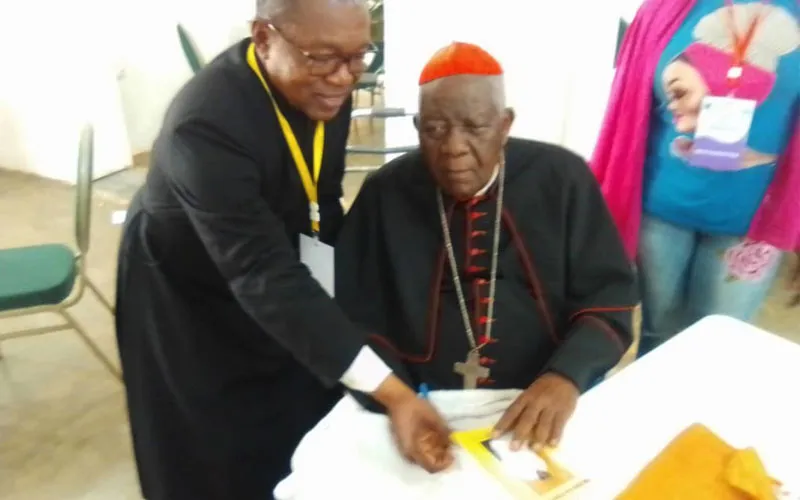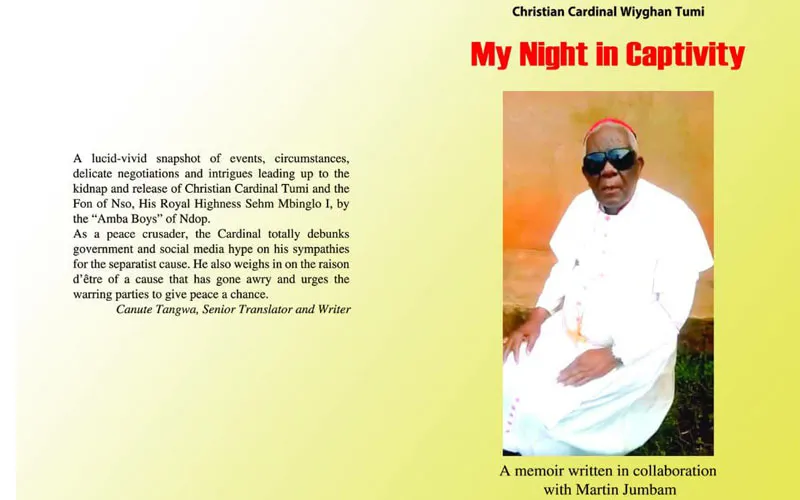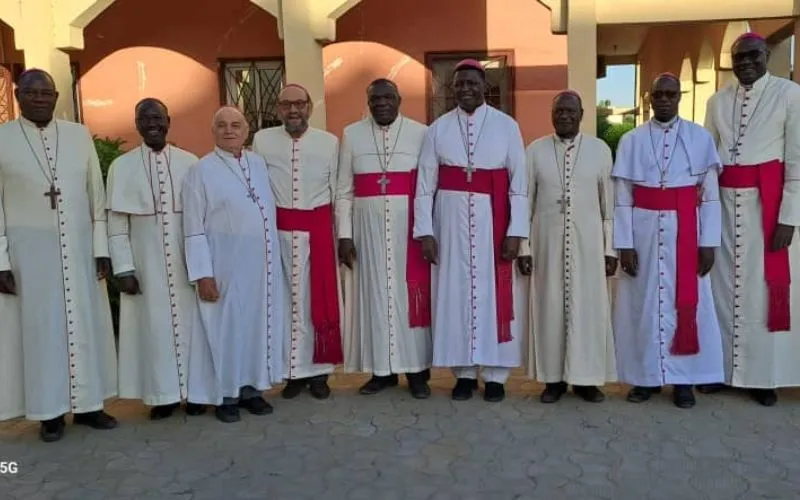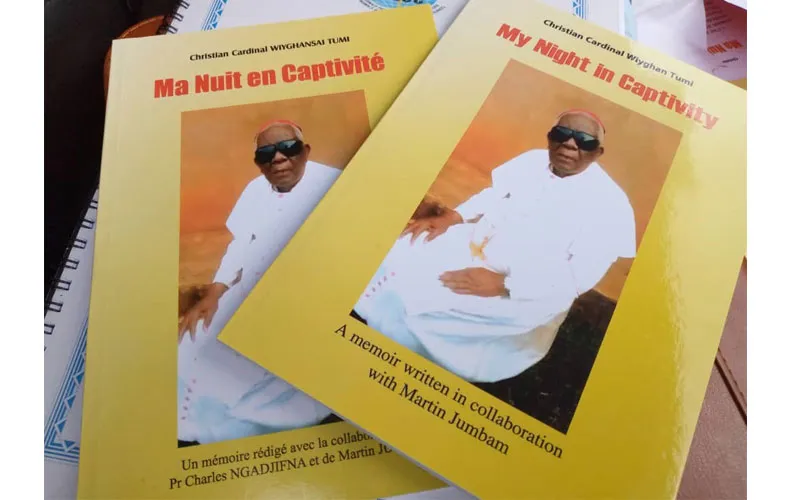On November 5, the 90-year-old Cardinal was kidnapped at Baba I, a village along the Bamenda-Kumbo road (North-West region). He was freed the following day.
Details of what those behind the abduction of Cardinal Tumi told him emerged in a video shared on social media, with the Archbishop emeritus of Cameroon’s Douala Archdiocese seen calm and collected as he provided responses to some of the questions from his captors.
In the 5.47min video, the Cameroonian Cardinal who had been abducted alongside 12 other people, including the traditional Chief of the Nso tribe, Fon Sehm Mbinglo II, is accused, by the captors, of “creating problems in our territory” and that they had held him for “questioning.”
During the January 12 interview with ACI Africa, Mr. Jumbam, who hosts programs on the Catholic Archdiocese of Douala-owned Radio Veritas, said, “The height of the book is the exchange he had with the boys who arrested him, who had him under control in a small farmhouse in the northwestern part of the country where he spent the night with his driver, and then the next day they came to him and were taking a video spreading it around the world.”

“They gave him an opportunity to say what he thinks about their struggle and events in the country and why he opposes their views as a pastor,” the Catholic journalist added.
He further said in reference to the Cardinal’s sharing in the memoir, “He talks about what is wrong like denying children the right to go to school, one of his relatives sponsoring their actions, and from there he gives the conclusion by saying that the government and the armed opposition should come to an understanding in dialogue, soldiers should go back to the barracks and then the fighters should lay down their arms in return.”
Northwest and Southwest Cameroon, the two Anglophone regions of the Central African nation, have been experiencing violence since 2016 after the deployment of Francophone teachers and judges to the historically marginalized English speaking region was resisted through protests.
The protests, which turned violent, involved lawyers and teachers in the Anglophone regions. They resisted the deployment of their Francophone counterparts arguing that the two regions operated under different legal and educational systems.













